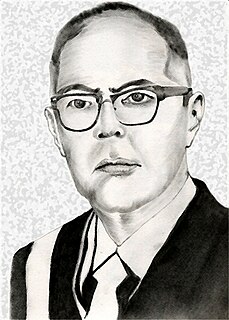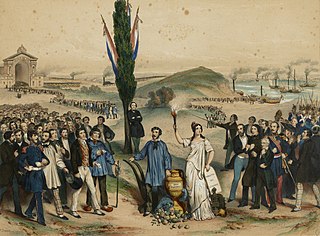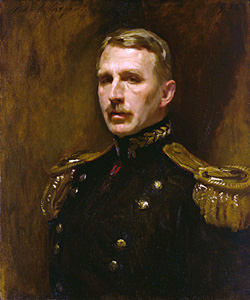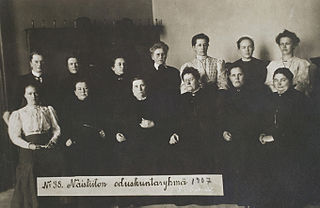
Carlos Prío Socarrás was the President of Cuba from 1948 until he was deposed by a military coup led by Fulgencio Batista on March 10, 1952, three months before new elections were to be held. He was the first president of Cuba to be born in an independent Cuba and the last to gain his post through universal, contested elections. He is sometimes called Charles Prio Socarras in English.
The Party of the Cuban People – Orthodox, commonly called Orthodox Party, was a Cuban left-wing populist political party. It was founded in 1947 by Eduardo Chibás in response to government corruption and lack of reform. Its primary aims were the establishment of a distinct national identity, economic independence and the implementation of social reforms.

Legislative elections were held in El Salvador on 8 March 1970. The result was a victory for the National Conciliation Party, which won 34 of the 52 seats. However, the election was marred by massive fraud. Voter turnout was just 41.6%.

Legislative elections were held in El Salvador on 10 March 1968. The result was a victory for the National Conciliation Party, which won 27 of the 52 seats. Voter turnout was just 36.6%.
The Cuban Revolutionary Party – Authentic, commonly named Authentic Party, was a political party in Cuba most active between 1933 and 1952. Although the Partido Auténtico had significant influence, it eventually became unpopular and, despite significant reforms, Fulgencio Batista returned to power.
The Cuban National League was a political party in Cuba. The league was one of two political groupings that emerged from the Junta Patriótica in Havana in March 1899.
The Democratic Federal Republican Party of Santiago de Cuba was a political party in eastern Cuba.
The Cuban Socialist Party was a political party in Cuba. The party was founded in March 1899 by Diego Vicente Tejera. The founding of the Socialist Party represented the first attempt in Cuban history to build a political party representing the working class.
The People's Labour Party was a short-lived political party in Cuba. It appeared in public with its programme in August 1901. The party was a continuation of the People's Party of Diego Vicente Tejera. However, it appears that Diego Vicente Tejera had no links to the People's Labour Party.
The Saguan Democratic Party was a short-lived political party in Sagua la Grande, founded in 1899. The party was led by Calixto Casals, José V. Andreu and Eduardo F. Rodríguez. The party gathered local interests which opposed the U.S. military occupation of Cuba.
The People's Party was a short-lived political party in Cuba. It was founded on November 7, 1900 by Diego Vicente Tejera. The People's Party sought to mobilize the working class of Cuba into political action. However the party failed to make any significant political breakthrough. Tejera took part in the Constituent Convention of 1901 as a delegate from the People's Party.
The Republican Party of Havana was a political party in Cuba. The party was founded in the end of 1899. It was led by Dr. Domingo Méndez Capote. Prominent party members included Mario García Menocal, Eugenio Sánchez Agramonte, Fernando Freyre de Andrade, Manuel María Coronado, Manuel Despaigne and Juan Gualberto Gómez.
The Federal Republican Party of Las Villas was a political party in Las Villas, Cuba. The party was founded in 1899 by the provincial governor José Miguel Gómez and Carlos Mendieta y Montefur. Pelayo García Santiago was the president of the party. Prominent party members included General José B. Alemán, Dr. Rafael Martínez Ortíz, General José de J. Monteagudo, José Manuel Berenguer, Francisco López Leyva, Lic. Benito Besada, José L. Robau, Eduardo Domínguez, Dr. Orestes Ferrara and Enrique Villuendas.
The Independent Republican Party was a political party in Cuba, led by Juan Gualberto Gómez. It was formed around 1900, after splits in the Republican parties in Havana, Matanzas and Las Villas. The split was caused by the opposition of the Republican parties to Gualberto Gómez's radical position against the Platt Amendment. The Independent Republican Party supported Gualberto Gómez's position on the issue.
The Cuban National Party was a political party in Cuba. At the very beginning of the 20th century, it was one of the three main political parties on the island. The party favoured independence for Cuba.
The Democratic Union Party was a political party in Cuba. The party was founded in 1899 by conservative sectors. In an alliance with the Republican Party of Havana, the DUP won the Constitutional Assembly elections in 1900. The DUP was dissolved in 1901.
A general election was held in Honduras on 27 November 1993. Voters went to the polls to elect a new President of the Republic and a new Congress.

A general election was held in Honduras on March 28, 1971. Voters went to the polls to elect a new President of the Republic and a new Congress.
A legislative election was held in Honduras on 7 October 1956. The people elected 58 deputies to the Constituent Assembly.
María Digna Collazo y del Castillo was a Cuban midwife, essayist, editor, suffragist, and feminist activist. She was one of the architects of Cuba's women's suffrage campaign of the 1910s, along with Amalia Mallén and Aída Peláez de Villa Urrutia. To this end, she participated in the foundation of the first organizations that sought to allow women to vote in her country, such as the Cuban Suffragists (1912) and the National Suffragist Party (1913) – of which she was vice president. Furthermore, together with Carmen Velacoracho de Lara, she founded the Feminist Party in 1918.









